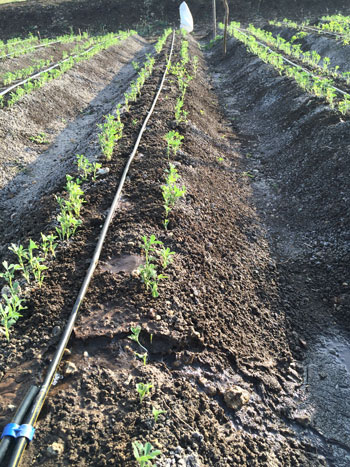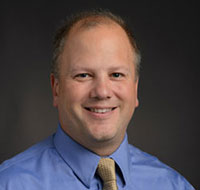Soluble Salts in Compost and Their Effects on Soil
 The compost industry has met with resistance to the use of finished compost because of high electrical conductivity (EC) (ie. soluble salts) measurements. Soluble salts are perhaps the most misunderstood parameter in a compost test data report. Many specifiers assume all soluble salts are harmful to plant growth and that soluble salts in compost directly translates to negative plant response. This leads to compost specifications based on this assumption and results in overly narrow soluble salts ranges for compost use. What is not understood is that soluble salt (or EC) is a total number assigned to an entire category of charged elements found in compost and include parts of the NPK, micro and macro nutrients beneficial, even essential, to plant growth.
The compost industry has met with resistance to the use of finished compost because of high electrical conductivity (EC) (ie. soluble salts) measurements. Soluble salts are perhaps the most misunderstood parameter in a compost test data report. Many specifiers assume all soluble salts are harmful to plant growth and that soluble salts in compost directly translates to negative plant response. This leads to compost specifications based on this assumption and results in overly narrow soluble salts ranges for compost use. What is not understood is that soluble salt (or EC) is a total number assigned to an entire category of charged elements found in compost and include parts of the NPK, micro and macro nutrients beneficial, even essential, to plant growth.
 The purpose of the soluble salt literature review was to gather the available peer reviewed scientific research regarding the salt content of finished composts causing the high EC. The goal was to identify the specific types of salts and whether those salts are beneficial or harmful to plant growth.
The purpose of the soluble salt literature review was to gather the available peer reviewed scientific research regarding the salt content of finished composts causing the high EC. The goal was to identify the specific types of salts and whether those salts are beneficial or harmful to plant growth.
The paper has recently been published in Compost Science & Utilization (CS&U). Published by Taylor & Francis, CS&U is abstracted in the prestigious Science Citation Index with an impact factor of 0.969. Publication of such work in an internationally recognized peer-reviewed research journal gives the work an extra level of recognition in the scientific community and reinforces CREF’s commitment to understanding and communicating the science involved in composting. The full paper is available open access, for Free, HERE.
Researchers from the University of Wisconsin-Oshkosh were hired by CREF to do this project.
 Greg Kleinheinz received his BS in Biology and Chemistry from Northern Michigan University and his Ph.D. from Michigan Tech University. He currently serves as the Viessmann Chair for Sustainable Technology, Director of the Environmental Research and Innovation Center, and Chair of the Department of Engineering Technology. Dr. Kleinheinz has worked on projects related to environmental contamination and beneficial reuse and remediation for over 20 years. The Environmental Research and Innovation Center (ERIC) is a contract research and development facility at UW Oshkosh that partners with organization throughout North America.
Greg Kleinheinz received his BS in Biology and Chemistry from Northern Michigan University and his Ph.D. from Michigan Tech University. He currently serves as the Viessmann Chair for Sustainable Technology, Director of the Environmental Research and Innovation Center, and Chair of the Department of Engineering Technology. Dr. Kleinheinz has worked on projects related to environmental contamination and beneficial reuse and remediation for over 20 years. The Environmental Research and Innovation Center (ERIC) is a contract research and development facility at UW Oshkosh that partners with organization throughout North America.
 Carmen Thiel is the Laboratory Manager for the ERIC Lab. She has been involved in compost testing since arriving at the ERIC in March of 2017. In addition, she has a BS degree in Water & Soil Resources from UW-Stevens Point and previously worked for a land conservation department on soil, water, and plant health issues, specifically with nutrient management. Her background working for a land conservation department as well as a crop consulting company demonstrates she is well versed in plant nutrition, soil, and compost management topics.
Carmen Thiel is the Laboratory Manager for the ERIC Lab. She has been involved in compost testing since arriving at the ERIC in March of 2017. In addition, she has a BS degree in Water & Soil Resources from UW-Stevens Point and previously worked for a land conservation department on soil, water, and plant health issues, specifically with nutrient management. Her background working for a land conservation department as well as a crop consulting company demonstrates she is well versed in plant nutrition, soil, and compost management topics.